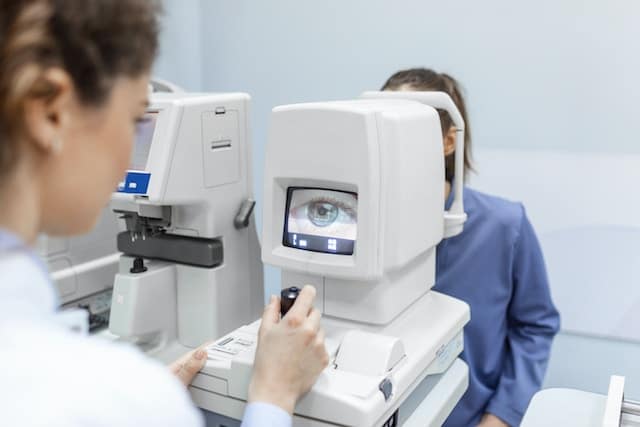Cutting-edge tech innovations are making it easier and faster to diagnose Alzheimer’s in its early stages.
In order to slow down the progression of Alzheimer’s disease, it needs to be diagnosed early — so early that symptoms may hardly even be present yet. But with today’s diagnostic tools and approaches, it’s hard to catch Alzheimer’s early — and to diagnose it accurately.
As of now, diagnosing Alzheimer’s involves a few invasive and sometimes expensive or difficult to access steps:
- Patients need to take a cognitive test
- Patients need a diagnostic process that establishes the presence of the disease’s tell-tale biomarkers — amyloid or tau proteins — in their brain or blood. Generally, this is done through a PET brain scan or a lumbar puncture.
But in the past couple years, new tools and methods are emerging that can make diagnosis faster, less invasive, and more accurate.
Since the neurodegenerative process underlying the disease can start a decade before symptoms appear, catching these signs early could provide doctors and their patients more time to intervene. These tests are already making their way into clinical practice. Here are a few of them.
1. Blood tests to detect Alzheimer’s biomarkers
Alzheimer’s blood tests, like those being developed by C2N Diagnostics, are already in use to screen participants and track disease progression in clinical trials. According to researchers, these tests, which look for amyloid, tau, or other protein biomarkers in the blood, will be available to doctors within a year or two. Other researchers are developing blood tests that could be done through a finger-prick at home, like a blood sugar test.
2. Retinal tests to spot Alzheimer’s signs, early
The eye is the next frontier for Alzheimer’s detection. The retina provides a small window to the brain and undergoes pathological changes years before symptoms of Alzheimer’s appear. While scientists are developing eye drops, AI algorithms for detecting Alzheimer’s from a retinal scan, and other detection methods — these tools are still in the early stages. It may take ten or more years for them to hit the market.
The ultimate promise is that these tests could be performed routinely and quickly by an optometrist during an annual vision appointment.
3. AI apps to flag the early signs of cognitive decline
Artificial intelligence is also entering the conversation. App-based tools, powered by AI, may make it even easier to screen people in the community for signs of cognitive decline.
Rather than requiring a doctor to conduct a 15-minute test, these apps can provide similar information in less time and don’t require a doctor to administer the test. It helps pick out the patients that doctors need to focus the most on and can speed up the process of getting a diagnosis.
These tests are also being designed to spot changes in cognition that are barely perceptible to humans, according to their developers.
For example, Cognivue’s 10-minute, self-administered test is basically like a video game that provides prompts on a screen that a patient needs to follow with a joystick. For example, one task involves following some moving dots on the screen. This is the first cognitive test approved in the U.S. by the FDA.
Meanwhile, Cognetivity’s AI test relies on the brain’s ability to process information visually. In five minutes, 100 images of natural landscapes flash onto the screen — 50 with animals in them and 50 without. The test subject simply needs to tap the screen to classify the image as an animal or non-animal image. This test is already being deployed in the U.K. and the U.S.

I’m a daughter of a mother who died from dementia related issues. I’m always looking for help on ways to learn more about brain issues as a senior.
Hi Ellen, thanks for being here! If you have any specific questions or topics you’d like to learn more about, please feel free to reach out to us at info@beingpatient.com. In the meantime, we’ll be keeping you posted on the latest brain health news, research and expert guidance at beingpatient.com/tag/brain-health